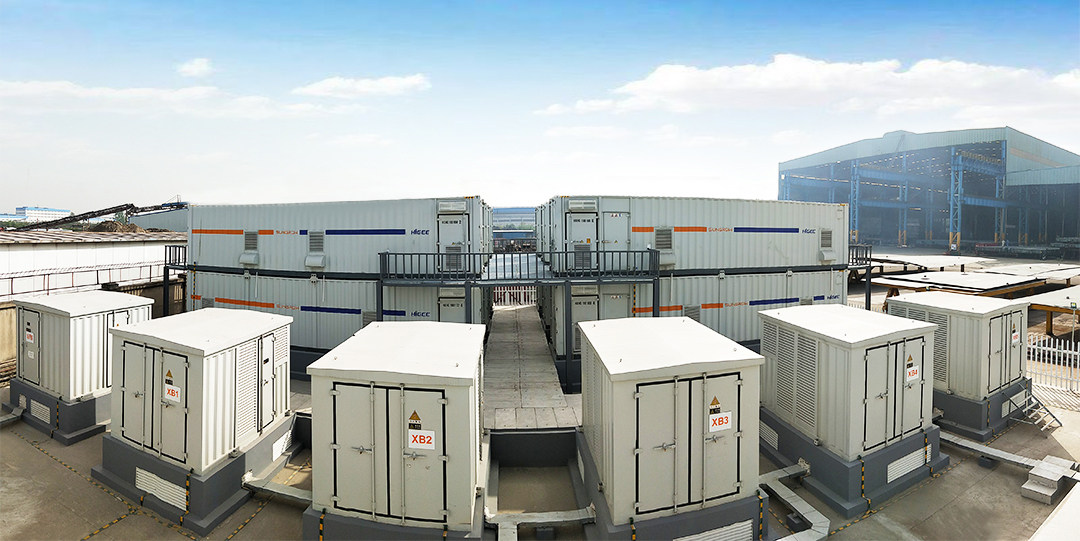How Commercial Energy Storage Systems Are Revolutionizing the Energy Market
In an era marked by rapid technological advancements and growing environmental concerns, commercial energy storage systems (CESS) are emerging as a game-changer in the energy market. These systems are transforming how businesses manage and utilize energy, providing innovative solutions to optimize performance, reduce costs, and enhance sustainability. This article explores the key aspects of commercial energy storage systems, their benefits, and their impact on the energy market.

Understanding Commercial Energy Storage Systems
Commercial energy storage systems are large-scale solutions designed to store electricity generated from various sources, such as renewable energy, and release it when needed. These systems typically consist of:
- Battery Storage Units: The core component, where energy is stored in batteries and can be either lithium-ion, lead-acid, or flow batteries.
- Energy Management System (EMS): Software that controls and optimizes the charge and discharge cycles of the storage units to maximize efficiency.
- Inverters: Convert stored DC power into AC power for use in the commercial grid.
- Monitoring and Control Systems: Track system performance, monitor energy usage, and ensure smooth operation.
Key Benefits of Commercial Energy Storage Systems
Cost Savings: One of the primary advantages of CESS is cost savings. By storing energy during off-peak hours when electricity rates are lower and using it during peak demand times, businesses can significantly reduce their energy bills. This load-shifting capability helps in stabilizing energy costs and improves financial planning.
Enhanced Reliability: CESS enhances the reliability of energy supply by providing backup power during outages or periods of high demand. This is particularly crucial for businesses that cannot afford any downtime, such as data centers or manufacturing facilities. With CESS, companies can ensure uninterrupted operations and protect critical assets.
Increased Efficiency: By integrating energy storage with renewable sources like solar or wind, CESS helps in balancing supply and demand. This integration leads to better utilization of renewable energy, reducing waste and improving overall system efficiency.
Environmental Impact: Using stored renewable energy reduces reliance on fossil fuels and decreases greenhouse gas emissions. CESS supports the transition to a cleaner energy grid, aligning with global sustainability goals and enhancing corporate social responsibility.
Grid Stability and Support: Commercial energy storage systems contribute to grid stability by providing ancillary services such as frequency regulation and voltage support. This support helps in maintaining a stable and reliable power grid, benefiting both businesses and the broader community.
Applications of Commercial Energy Storage Systems
Peak Shaving: Businesses can use CESS to reduce their peak electricity demand, avoiding high peak-hour rates and lowering overall energy expenses. This is particularly useful for facilities with variable energy usage patterns.
Renewable Integration: CESS facilitates the integration of renewable energy sources by storing excess energy generated during peak production periods and releasing it when production is low. This helps in overcoming the intermittency issues associated with renewable energy.
Emergency Backup: CESS provides a reliable backup power source during grid outages, ensuring that critical systems remain operational and preventing potential losses.
Demand Response Programs: Businesses can participate in demand response programs, where they use stored energy during peak times to reduce their load on the grid. In return, they receive incentives or lower energy costs.
Energy Arbitrage: By buying electricity during off-peak periods when rates are low and selling or using it during peak periods when rates are high, businesses can capitalize on energy arbitrage opportunities, maximizing their return on investment.
Challenges and Future Prospects
While commercial energy storage systems offer numerous benefits, they also face challenges such as high initial costs, limited storage capacity, and technological advancements. However, ongoing research and development are addressing these issues, leading to more affordable and efficient solutions.
The future of CESS looks promising with advancements in battery technology, energy management systems, and integration techniques. As costs decrease and technology improves, more businesses are expected to adopt these systems, further revolutionizing the energy market and contributing to a sustainable future.
In conclusion, commercial energy storage systems are playing a pivotal role in transforming the energy market. Their ability to reduce costs, enhance reliability, and support sustainability makes them an essential component of modern energy management. As technology continues to evolve, CESS will drive further innovations and contribute to a more efficient and resilient energy landscape.
Contact us
- Email:[email protected]
- Tel: +86 13651638099
- Address: 333 Fengcun Road, Fengxian District, Shanghai
